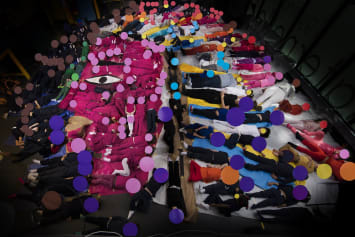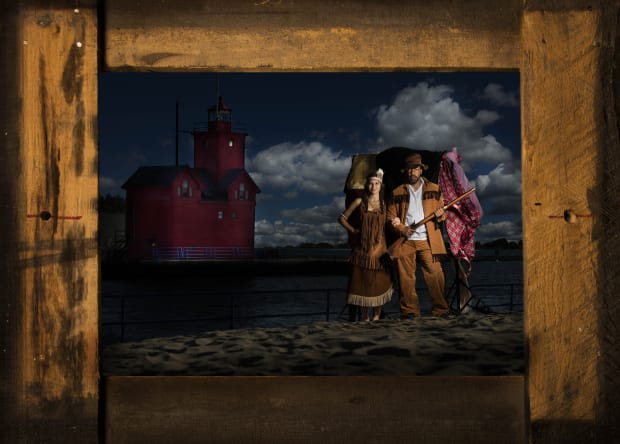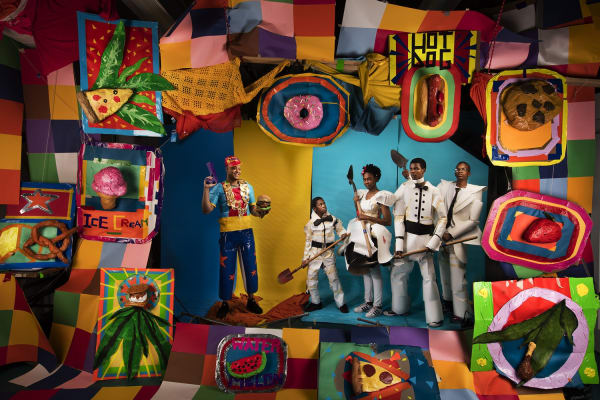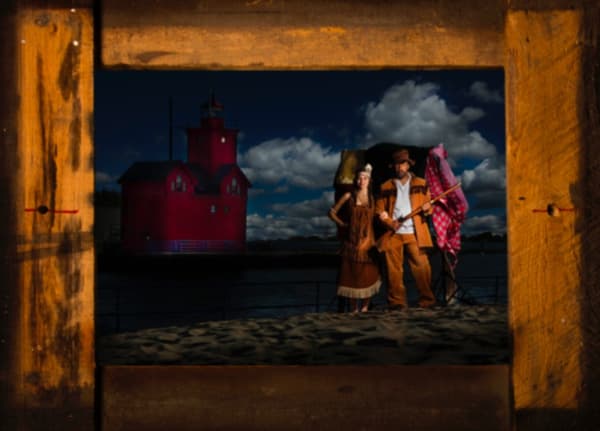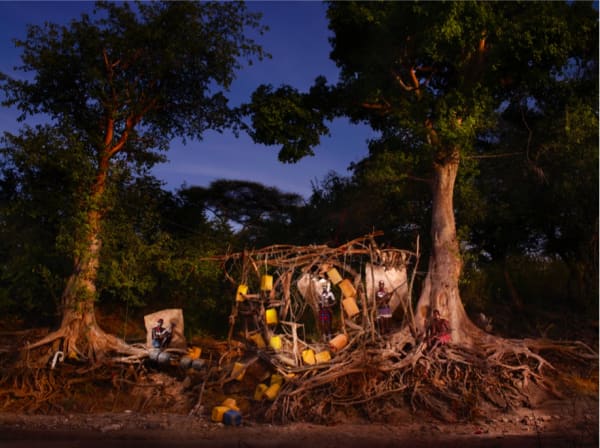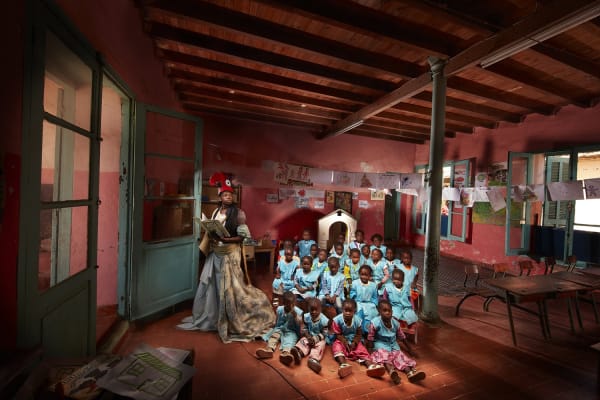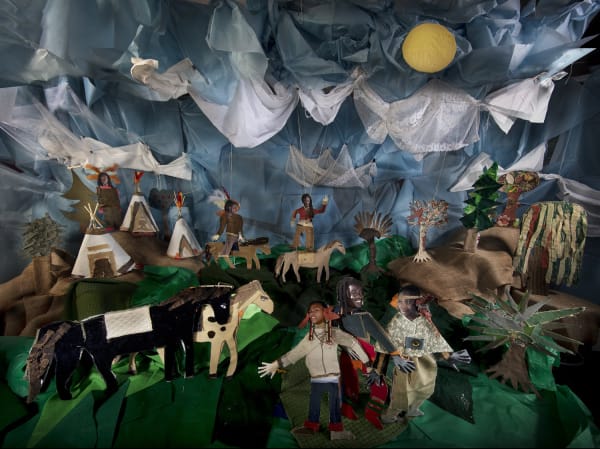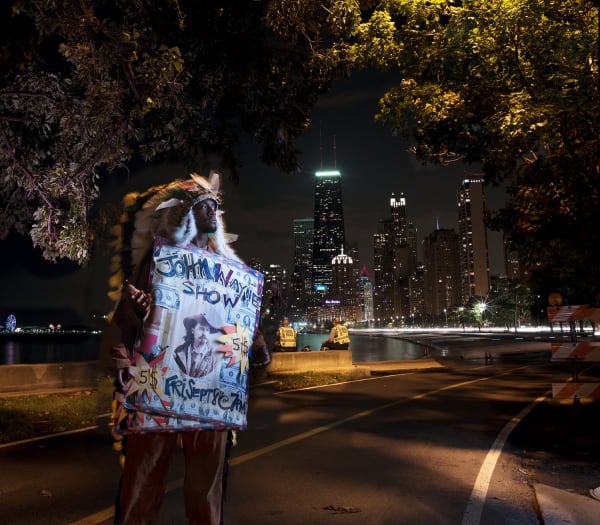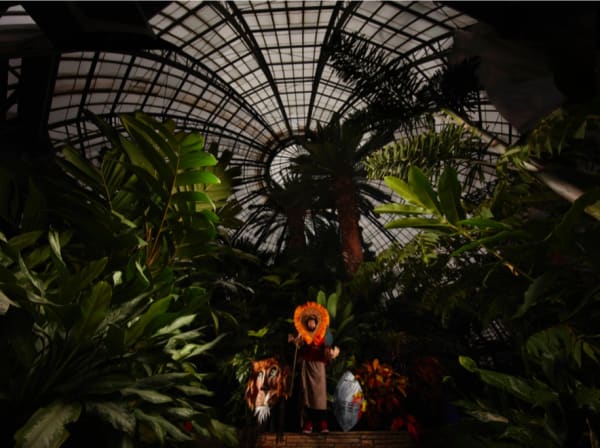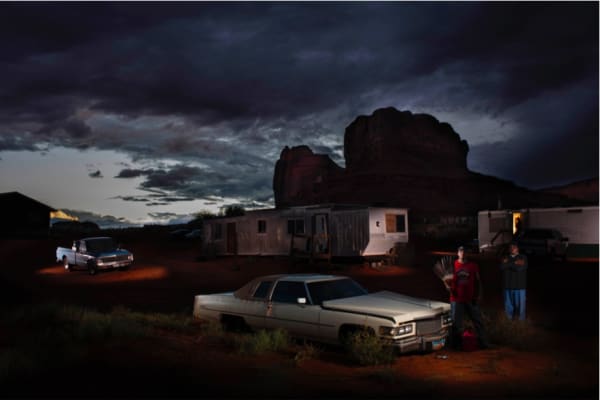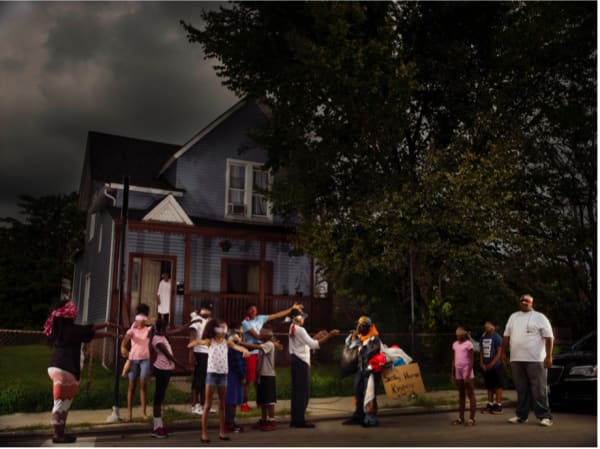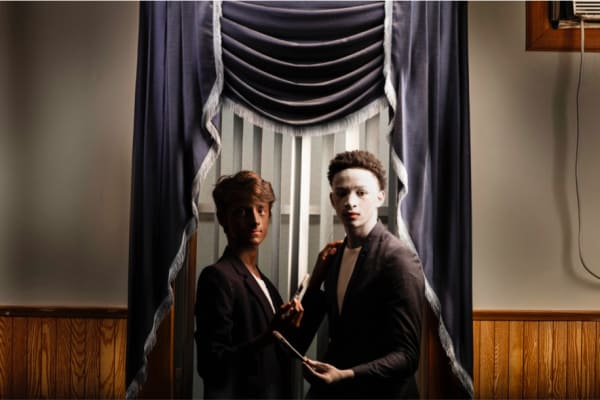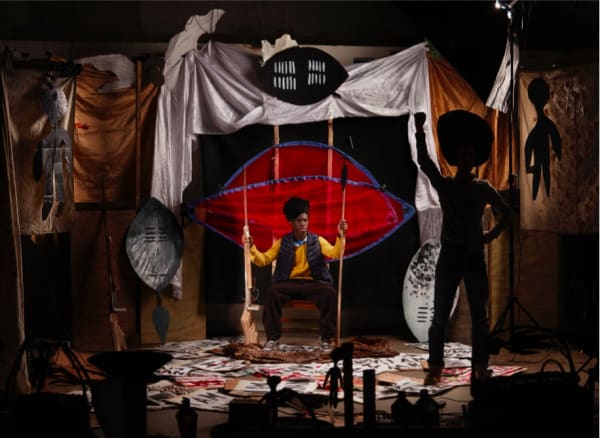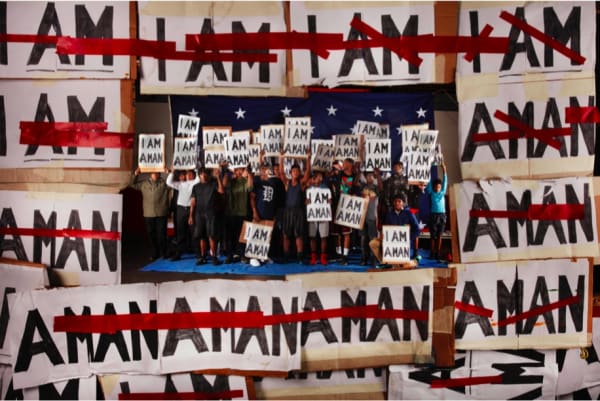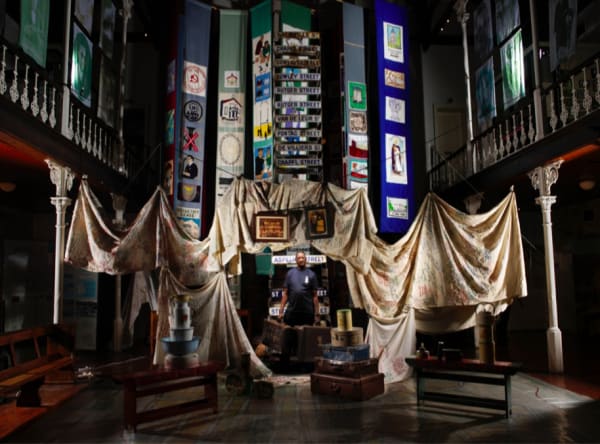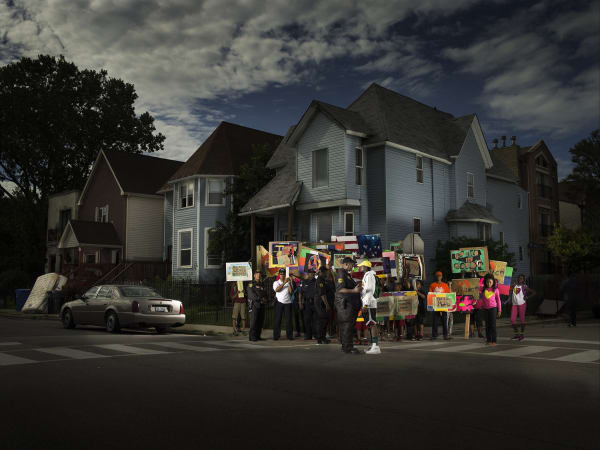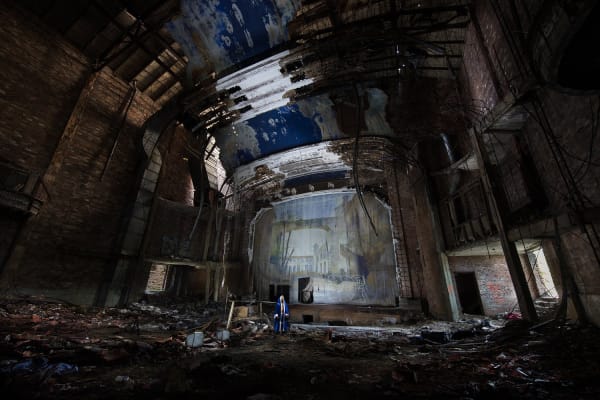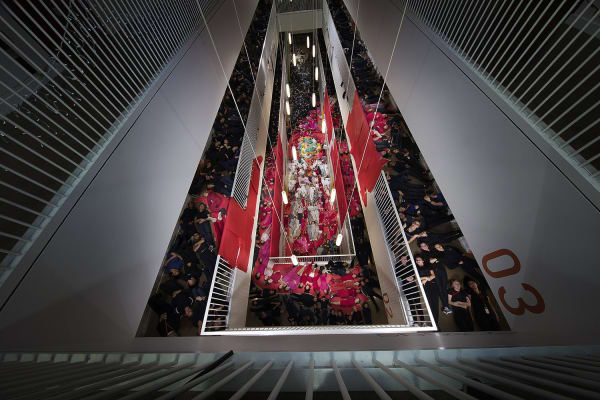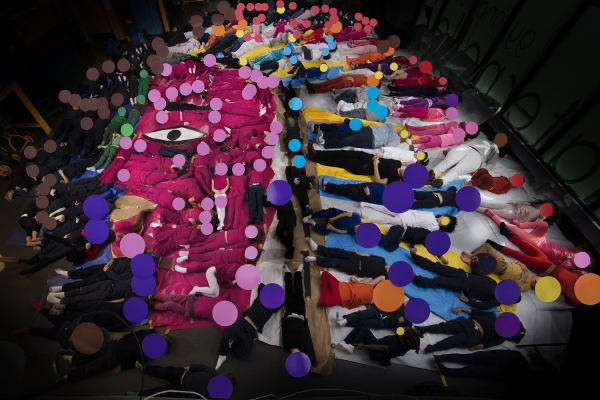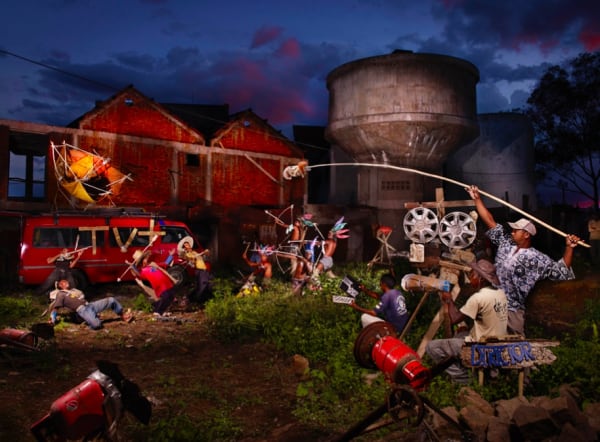We open this - Online only - series with an online exhibition of the photographer Nicolas Henry whose work we invite you to discover. Through his project Kitihawa's Chandelier which was realized in 2017, we will see the importance that the artist gives to human beings, history, and freedom.
-
We will also see through an interview how this series is a continuation of the work of the artist whose clichés take us all around the world in carefully constructed stagings using everyday objects and within which the artist tackles universal themes such as childhood and adolescence in the face of history, the place of women and the right to choose, discrimination, ecology, freedom, and death.
Finally, we will see how all of his projects can be compared to a vast traveling theatre.
-

Kitihawas's Chandelier series, 2017
-
Kitihawa’s Chandelier
For the series Kitihawa's Chandelier, Nicolas Henry has done a great deal of research on the history of colonization and decolonization and has conducted research on American history and the identification of the great figures of the independence movements.
As usual, the artist went to meet the Chicago residents themselves, from different communities. Among them, Skyart in South Chicago, Bright Star Community Outreach in Bronzeville, and the Lycée Français de Chicago in Lincoln Square, as well as in Detroit with The Downtown Boxing Gym and Popps Packing.
The project as a whole also includes images made in Africa, Brazil, and France.
-
Like a history book, Kitihawa's Chandelier tells the big Story in pictures and highlights great figures in the fight against slavery. It features Toussaint-Louverture, a hero of the abolition of slavery in Haiti, but also forgotten men and women such as Kitihawa, a Potawatomi Indian woman who was the wife of Jean-Baptiste Pointe du Sable, the founder of the city of Chicago.
As usual, the decorum was entirely imagined and made by Nicolas Henry and the extras with recycled objects and materials. Each of the people who took part in the project, most often spontaneously, by word of mouth, took part in the staging and appropriated a part of the story.
Reality mingles skilfully with fiction, allowing the participants to assume the costumes of great historical figures.
Here, as in the artist's previous works, the stories blend accurately and take on an obvious universal scope.
Resilience, tolerance, dialogue, and solidarity are once again at the center of the artist's work.
The White Color arts dissemination platform that helped produce the project states that "Kitihawa's Chandelier provided a creative space where participants were able to exchange ideas, address the challenges facing their communities and express their hopes and ideas for the future.
Through this committed series, the artist wished to highlight a part of American history and to work for the recognition of minorities.
Supported by the City of Chicago and the Illinois Art Council The project was created for the DuSable Museum of African American History where the photographs were exhibited in 2017 under the curatorship of Tiphanie Babinet.
-

Kitihawa's Chandelier series, 2017
-
Available works for this series

